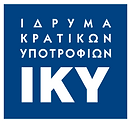Evaluation Management



Evaluation management is about working through the process of planning and implementing the evaluation and reporting. The planning of evaluation started in the designing of this proposal phase where we defined the role and purpose of evaluation as well as the evaluation practices that will be used, how it will be linked to organisational elements or/and used for next activities' re-designing and implementation processes, how results will be communicated thoroughly to the participants, etc. Thus we resulted to the evaluation draft plan attached in annexes. Here is included evaluation of :
-
needs and characteristics, and trends so as to better design our activities
-
tasks' content and outcomes in each virtual and physical activities so as to see what works well and what needs to be improved, if intended outcomes are being attained, etc so to suggest improvements in our next steps.
-
survey findings on eating behaviour and measurement of the adherence to the Mediterranean Diet by making use of the MediDiet Score questionnaire
-
curriculum materials - both existing and those created by the partnership (quality, needs, outcomes)
-
intended outcomes achievement and extend of achievements in terms of knowledge and behavioural changes as well as what to report and how to use the reports of impact focusing on what the partnership is aiming to achieve in each school (changes in awareness, knowledge, attitudes, behaviors, and skills),and eventually in society by assessing the impact on broader society.
To maximize insights regarding the specific teaching approaches adopted, significant amounts of feedback were collected throughout the entire project from the participants:
● Anonymously feedback, which will be collected at the end of every activity on
TwinSpace with questions posed to participants each time
● Anonymously formal evaluation, which will be conducted at the end of each mobility
and at the end of project.
We had also decided to use quantitative surveys, complementary qualitative monitoring
activities, and intermediate evaluations, based on indicators. We also used co-evaluation and auto-evaluation, through:
- Reliable rubrics which will have been co-created with students prior to the assigned task in every national and transnational TwinSpace activity;
-Questionnaires;
-Observation reports for participating teachers and students after each monthly task on
TwinSpace and after mobilities, in order to measure the achievement of planned activities
or meeting goals or/and topics that they would like further development;
-TwinSpace forums and exit tickets after each module has been completed;
-Quizzes, games, and debates;
-Observation data gathering, collaboration, and reporting efforts;
-Collections of video recorded STEM activities which will contribute to conveying the visual quality of the activity, and the mood or excitement of participants;
- Participant reaction forms
MedDiet Score
The evaluation of the effectiveness of nutritional interventions requires the use of valid and reliable measurement tools. In this context, weighted questionnaires (or psychometric scales) are a key tool in educational research, as they allow the accurate recording of changes in knowledge, attitudes and skills (Leppink et al., 2022; Phan et al., 2022). Their use before and after the intervention ensures the objective assessment of changes and allows targeted improvements (Mettert et al., 2020). The development of such tools follows a rigorous methodological process that includes theoretical documentation, pilot implementation, reliability analysis (e.g. Cronbach’s α) and validity testing (Clark & Watson, 1995; DeVellis, 2017; Boateng et al., 2018). The weighting is completed with administration, scoring, and interpretation protocols, ensuring the generalizability of the results (Terwee et al., 2007).
The value of applying weighted questionnaires at two time points, before and after the intervention, is manifold. Measuring the initial state (baseline) provides critical data for targeting the intervention, while assessing change through statistical analyses, such as t-tests for dependent samples, determines the extent and statistical significance of the changes to determine whether the observed difference is not due to chance (Rossi et al., 2003; Lakens, 2017;Tabachnick et al, 2019). If the results after the intervention show significant improvement in the measured characteristics, this is a strong indication of the effectiveness of the educational intervention (Hedges, 2025; Maxwell & Delaney, 2019). Even if the intervention is deemed effective, data analysis can highlight specific areas where improvement was less or insufficient. This provides valuable information for reviewing and improving the intervention in future applications (Mertens, 2019).
In this context, we used the MedDietScore, which is a widely used weighted tool for assessing adherence to the Mediterranean Diet. Specifically, it scores the frequency of consumption of 11 food groups (Table 1), with a score from 0 to 55 and reverse scoring for foods of low nutritional value (Panagiotakos et al., 2006).
Its high internal consistency (Cronbach’s α > 0.80) and comparative validity allow for the accurate measurement of both initial levels of adherence and improvements after educational intervention, making it a reliable tool in educational and research settings (Panagiotakos et al., 2006; Terwee et al., 2007).
Finally, the sensitivity to change of the MedDietScore facilitates statistical comparisons “before–after” (paired t-test, Wilcoxon signed-rank test), while the analysis of individual questions provides critical feedback loops for the continuous improvement of teaching materials (Streiner & Norman, 1989; Cook & Beckman, 2006). The adoption of such a recognized, psychometrically tested tool enhances the generalizability of the findings and supports the development of multicenter research initiatives in the field of nutritional education.
Thus, the measurement of the MedDiet Score before and after attending the course was deemed necessary to evaluate the effectiveness of the educational intervention in enhancing adherence to the principles of the Mediterranean Diet, offering objective data on the impact of the project on the nutritional attitudes and behaviors of the participants.






